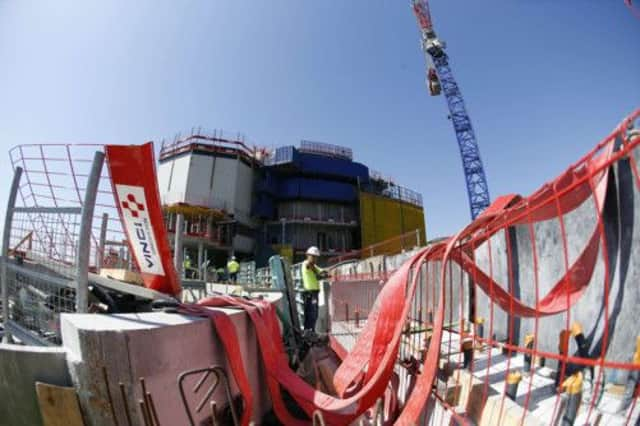Red tape costing small businesses


The vast majority – 99.8 per cent – of building firms in Scotland are small to medium sized enterprises (SMEs). These businesses form the backbone of our local economies. They represent entrepreneurialism and professionalism in the construction industry, provide steady jobs and keep money local.
Each year, public bodies spend £9 billion on goods and services, in areas such as health and education, £2bn of it to the construction industry. But too much of it ends up in the pockets of large multinational corporations that operate in Scotland only to provide short term jobs and move the money elsewhere. SMEs are missing out on much of this work, because they lack the resources to compete in the overly bureaucratic procurement process.
Advertisement
Hide AdAdvertisement
Hide AdNowhere is this more evident than in the pre-qualification questionnaire (PQQ) process. PQQs are used by both private and public sector clients to aid them in choosing suppliers. They are meant to give them the ability to make an objective assessment, and feel confident in the contractors’ ability to complete the job, whether that’s building a new school or painting a hospital.


But most PQQs are too long and complicated, and demand information that is irrelevant to the project. They also fail to take into account the suppliers’ impact on the local economy. Separate questionnaires are usually required for every single job.
Built-in advantage to major corporations
We understand the need for PQQs in public sector procurement, and support the idea of a transparent, competitive process. But as currently practised, they place unacceptable burdens on small and medium-sized building firms. The sheer amount of red tape means they are not cost-effective for most local businesses to complete.
Unlike multinational companies, SMEs do not have the staff and resources to complete excessively long documents, and answer numerous questions that are often irrelevant to the job in hand. By spending valuable time on these questionnaires, they lose hundreds of pounds and miss out on other opportunities. The system gives a built-in advantage to major corporations, who are usually based elsewhere and provide little or no stable employment in the local area.
Hiring local builders does not just benefit the firms themselves. They are likely to buy supplies locally and pay taxes locally, injecting money back into the economy. Their employees have more cash to spend at nearby shops and businesses. And these firms provide secure jobs and play a large role in training apprentices.
At a time of economic uncertainty, it is imperative to support smaller Scottish businesses and allow them to compete on a level playing field. PQQs should give greater weighting to sustainable local employment, incorporating this into their selection criteria. They should consider the impact on the local economy, rather than choosing firms that only provide temporary work while the bulk of the profit goes elsewhere.
Reduce red tape
We support standardising PQQs across Scotland for all public bodies. A builder in the central belt can end up filling in PQQs for a dozen or more councils, all within a few miles of one another. This is time-consuming and a major disincentive for smaller companies attempting to compete for this work. By standardising the process, the amount of red tape is drastically reduced.
Furthermore, once a PQQ is completed, the key data should be saved and suppliers should be able to use the saved responses for all further PQQs they complete that year. All public bodies would have access to a centralised database that stores the details of appropriate suppliers for a given project. This would save a substantial amount of time for SMEs who currently have to input the same information time and time again.
Advertisement
Hide AdAdvertisement
Hide AdThe Scottish Government’s Procurement Reform Bill is due to be introduced later this year. We hope this will be a step towards a fairer procurement process. This will send a strong message that the government, councils and other public bodies are standing up for Scottish businesses, and helping build sustainable local economies.
• Grahame Barn is director of FMB Scotland. www.fmb.org.uk